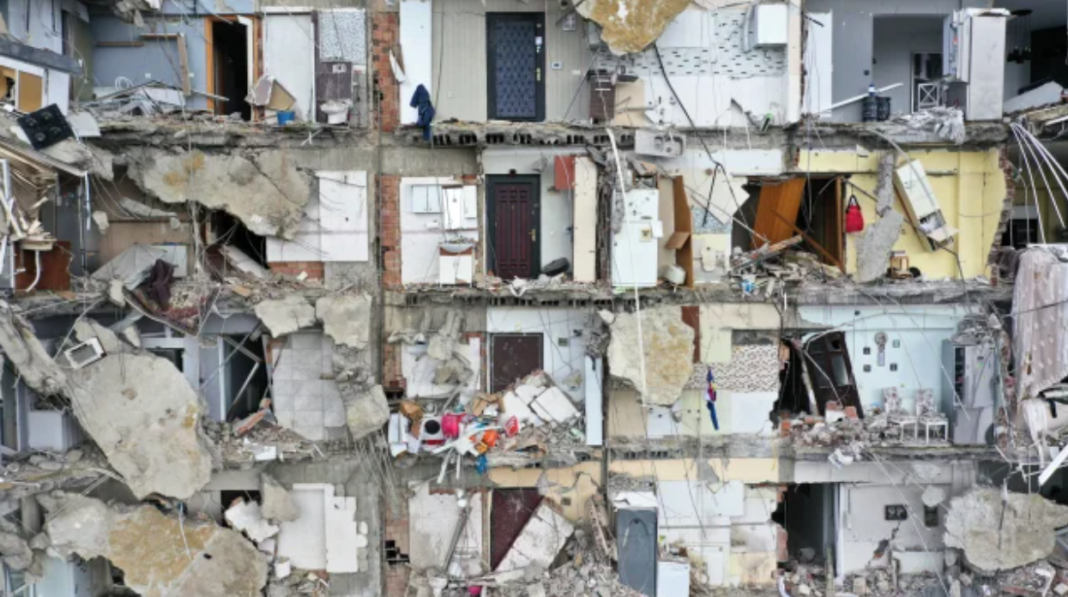Francesco Siccardi’s analysis in Carnegie Middle East Center on February 16, 2023.
For Turkey and Syria, there will forever be a before and an after February 6, 2023. On that day, an earthquake wiped out tens of thousands of lives (37,000 in Turkey and 5,800 in Syria at the time of writing), leaving millions of people displaced along the two countries’ borders.
If grieving and reconstruction will accompany Turkish and Syrian citizens for years to come, the first political consequences of the disaster can already be observed. In Turkey, the political destiny of President Recep Tayyip Erdoğan is on the line. Popular discontent with the Turkish authorities’ slow reaction to the disaster might cost the president his reelection in a year that marks the 100th anniversary of the Turkish Republic. However, because of the earthquake’s impact, Turks are unlikely to go to the polls on May 14. The elections will probably be put off either until mid-June, the legal delay dictated by the constitution, or until 2024 if Erdoğan and his party can pull a rabbit out of their hat. In Syria, meanwhile, President Bashar al-Assad has been exploiting sympathy for the earthquake’s Syrian victims to call for a lifting of Western sanctions and an end to his international isolation.
The consequences of the earthquake will be momentous for the relations between Turkey and Syria. Until January 2023, a rapprochement between the two countries, after more than a decade of animosity, was well under way. After failing to act upon the threat of conducting a fifth military incursion in northern Syria, the Turkish leadership began sending encouraging signals to Damascus. The Assad regime, in turn, had a condition: that Turkey remove all its troops from Syria. But a convergence of interests between Ankara and Damascus to thwart Kurdish independence aspirations in northeastern Syria seemed increasingly possible.
If Assad’s attention to the Turkish opening was dictated by his own instinct of political survival, Turkey’s Syria policy was driven by external and domestic factors alike. On the one hand, Russia was pushing Turkey to open dialogue channels with Syria, both to diminish the chances of an expanded Turkish military footprint in northern Syria and to drive a wedge between Ankara and its Western allies, who oppose any reconciliation with the Assad regime. On the other, the calculation in Ankara was that improving ties with Syria could reap electoral benefits by showing that the government sought actionable solutions to the presence of large numbers of Syrian refugees in Turkey. It would also steal a talking point from the opposition, which has proposed a dialogue with Assad as the recipe for sending Syrian refugees home. And it gave prominence to the Kurdish question in the Turkish political debate, which Erdoğan calculated would play to his advantage.
After the February 6 earthquake, these considerations have been altered in several ways. Internationally, normalization with the Assad regime will continue to be promoted by Russia and other regional powers. Some of these, such as the United Arab Emirates, have generously sponsored emergency aid to Turkey and Syria, as well as helping improve Turkey’s public finances. Domestically, common sense suggests this is not a good time for Ankara to step up its rhetoric against the Syrian Kurds, let alone pitch to its electorate that counterterrorism and border control justify the Turkish Army’s deployment in northern Syria. The fact that the Kurdistan Workers Party announced a temporary suspension of activities inside Turkey would make the government’s case even harder to validate. Yet Turkish drone strikes in northern Syria were reported in the week following the earthquake.
Even if disaster relief will remain the government’s principal concern in the short and medium term, the Turkish government will be confronted increasingly with the refugee issue. An uptick of populist, anti-Syrian rhetoric is already visible in areas of Turkey that were most affected by the earthquake. Syrians have been accused of looting, with videos going viral on social media thanks to a campaign orchestrated by far-right, anti-refugee politicians such as Ümit Özdağ. Nor is this likely to end soon. Under the present circumstances it is hard to imagine hundreds of thousands of Syrian refugees returning to their country.
Turkey will also have to deal with the potential risks of a further inflow of Syrian refugees from Idlib Governorate, which before the earthquake was already home to almost 3 million internally displaced people. Because of this, the Assad regime’s preconditions for dialogue—that the Turkish Army leave northern Syria and end its support for rebel forces on the ground—are impossible for Ankara to meet. A continued Turkish military presence in Idlib is seen by Turkey as insurance against future waves of refugees crossing the border.
This leaves Turkey with few good options and the certainty that, as the electoral campaign progresses, the February 6 earthquake has further centered the objectives of Turkey’s Syria policy around Erdoğan’s electoral interests. This is the principle that will inform Turkey’s actions and negotiations going forward.
Bashar al-Assad finds himself in a similar situation. He is calculating every move to maximize his gains and inch away from his status as an international pariah. Assad will make concessions as he sees fit in this regard. The opening of aid routes to rebel-held northwestern Syria is an early example of this attitude. But as the calculations on both the Turkish and Syrian sides play out, it is the Turkish and Syrian victims of the earthquake who will likely continue to suffer. Their pain seems to carry little weight in the greater political game unfolding around them.
Francesco Siccardi’s analysis in Carnegie Middle East Center on February 16, 2023.

